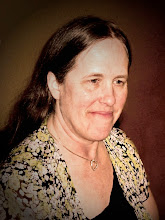Multiple Myeloma Survivor
>
> Becky Voelkel has diabetes. She lives in Concrete, Washington and drives
> into Skagit Valley Hospital in Mount Vernon for her medical care. It was
> during a routine visit and routine blood work in May of 2008 that her
> doctor noticed an increase in the protein levels in her blood.
>
> "I went back in August to check it again. And still the protein level
> was high. It was just shooting up," Becky says.
>
> Becky says she remembers looking gray that summer because she was
> anemic. "They were surprised I was still walking around," Becky says.
>
> Diagnosis
> On September 5 her doctor ordered more lab work. "He never said cancer,
> just hematology," Becky says. "I think he didn't want to say it. But
> when I saw the hematologist, that's when I learned I had multiple
> myeloma, incurable."
>
> A bone scan and bone marrow biopsy followed, as well as two pints of
> blood and Becky was to start chemotherapy the following Monday. Her
> disease had taken over 80 to 90 percent of her bone marrow, putting her
> cancer at Stage 3.
>
> "The hematologist suggested a new medication just approved for multiple
> myeloma called velcade," Becky says.
>
> Becky received her first two weeks of chemotherapy with Velcade and felt
> fine. "I'm still amazed with how Velcade worked even two years later," she says. "My doctor did not expect my counts to drop more than 50% but they went from 5.3 to 1.6 almost a 75% drop in one cycle of treatment." The 0.5 was what I finally got down to when I first saw Dr. Holmberg and she suggested revlimid to bring the counts down more before transplant.!"
>
> Autologous Transplant
> The next step in Becky's treatment was to be an autologous bone marrow
> transplant, where doctors remove a patient's stem cells and then put
> these cells back into the patient after conditioning therapy which is
> either high-dose chemotherapy, irradiation, or both. She would not need
> a donor as she was going to use her own stem cells.
>
> Her doctor referred her to Dr. Leona Holmberg, a medical oncologist at
> Seattle Cancer Care Alliance.
>
> Becky has an aggressive form of myeloma. She was told that in most cases
> it will recur in a year after transplant. So Dr. Holmberg wanted to
> reduce her cell counts even lower than the 0.5 it was currently at
> before she was transplanted. Becky received revlimid, another multiple
> myeloma treatment medication.
>
> "I felt better during treatment than I had before I was diagnosed,"
> Becky says, "because my blood was getting healthier."
>
> Becky had her bone marrow harvested in August 2009. "I even postponed it
> a day because I won free Mariners tickets!" she says. She received her
> transplant on September 30.
>
> Fundraising
> "I didn't want to give up working, but my boss was generous and gave me
> a paid leave of absence for three months. And then my kids helped me do
> fundraisers to help me pay for my stay in Seattle for my transplant,"
> Becky says. "With help from my boss, we earned $17,000 in four months!"
> These funds got her through her transplant and even through the next six
> months before she could return to work.
>
> "I did really well after my transplant," Becky says. "I had the regular
> side effects from the high-dose chemotherapy before the transplant, but
> that only lasted 10 days. I never felt sick otherwise, except when I was
> really weak when I was first diagnosed."
>
> Clinical Research Study
> Having multiple myeloma is almost like having diabetes. Becky will most
> likely have to take medications to keep it under control for the rest of
> her life. She is now participating in a research study for maintenance
> therapy after autologous transplant with vorinostat and velcade.
>
> "It's Dr. Holmberg's trial, but I'm able to receive my treatments at
> Skagit Valley Medical Center, which is really nice."
>
> Skagit Valley Medical Center is a member of the Seattle Cancer Care
> Alliance Network, which give Skagit Valley special privileges to
> participate in clinical research studies begin conducted by SCCA
> doctors, among other things. Becky's doctors in Mt. Vernon are in close
> contact with Dr. Holmberg at SCCA.
>
> Becky doesn't believe her cancer will return in the next year. "I am
> feeling amazingly well. I don't feel like I've really had a cancer!"
>
>
> Amy Poffenbarger
> Marketing Communications Specialist
> Seattle Cancer Care Alliance
> Phone: (206) 288-6427
> Fax: (206) 288-1310
> Mail Stop: CM-100
> www.seattlecca.org
Friday, May 21, 2010
Subscribe to:
Post Comments (Atom)



No comments:
Post a Comment
Note: Only a member of this blog may post a comment.